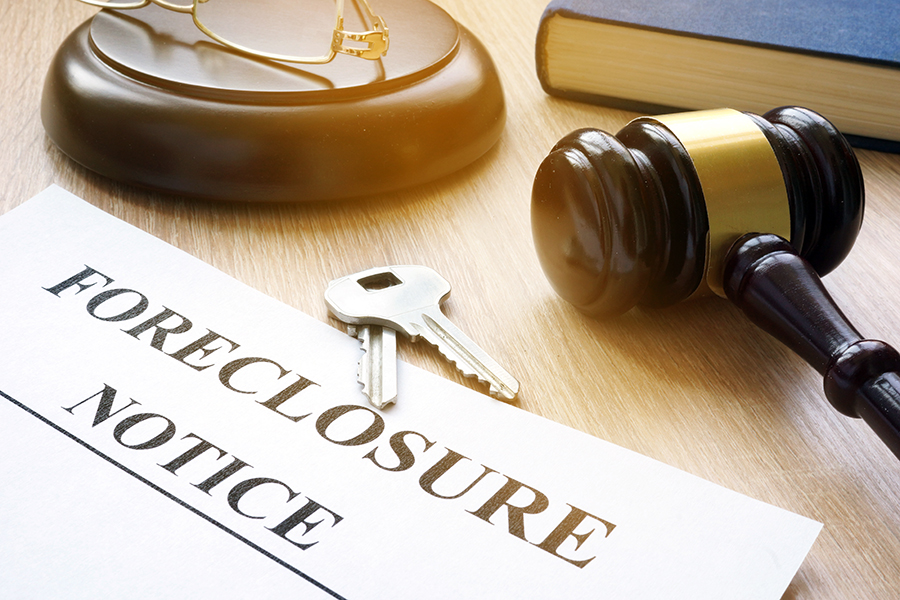A Look at Utah's Version of the Foreclosure Process

Most home buyers enter into a mortgage agreement to further their dream of owning a home. Unfortunately, life sometimes presents unforeseen financial hardships. For some homeowners, this can lead to missed mortgage payments and possibly a foreclosure. Due to this, every homeowner should have some understanding of the foreclosure process. This knowledge will help you when you encounter financial problems that threaten your ability to make mortgage payments.
What Type of Foreclosures Apply?
The foreclosure process can differ depending on the laws of the jurisdiction. Overall, there are two types of processes: judicial foreclosures and nonjudicial foreclosures. Across the U.S., you'll find that each state adheres to one of these processes. Interestingly, in Utah, either may be used. Yet, the nonjudicial method is the most common.
As the name suggests, a nonjudicial foreclosure is not handled by the court system. Instead, lenders can begin to take foreclosure action after 120 days of delinquency. The first step is the breach letter. The actual foreclosure process is initiated by a notice of default. This notice will usually give the borrower time to correct the situation. If the loan remains in default, the trustee will issue a notice of sale. At this point, a foreclosure sale may be held.
More Details About Utah Foreclosures
Mortgage Loans
There are two important documents that allow a person to get a home loan in Utah. The first is a deed of trust. This is a legal document that grants a security interest to the lender. A deed of trust will also have a power of sale clause. This allows the lender to sell the property if the loan is not satisfied. In addition, a home loan also requires a promissory note. This document contains all of the pertinent financial data related to the loan. It will also serve as your promise to repay the loaned amount.
Missing Payments
There are several things that can happen when you begin missing payments on a loan. The severity of these actions can range from late fees to a breach letter. As mentioned, the foreclosure process cannot begin until 120 days have passed since the first delinquency. At this point, the lender can send a notice of intent to file for a default. At this point, you may have other loss mitigation options to work with. For example, you may be able to request a loan modification to change the payment amount of the loan. Per Utah Code Ann. section 57-1-24.3, borrowers have 30 days to cure the default. By doing so, the borrower can avoid the filing of the notice of default. In any case, you should consult with a real estate attorney when dealing with a default situation to ensure your rights are protected.
Foreclosure Sales and the Right to Reinstate
If you are unable to catch up or qualify for loss mitigation options, the lender may move forward with the foreclosure. Again, this begins with the filing of the notice of default in the county where the property is located. Borrowers and any other interested parties will get a notice of this filing within ten days in accordance with Utah Code Ann. section 57-1-26(2)(a). The notice of the foreclosure sale will follow, at least 20 days prior to the sale date. At this point, it is important to realize that you still have options to stop the foreclosure.
Under Utah law, a borrower may reinstate a loan prior to the foreclosure sale. This will require paying all past due amounts and any related fees. A reinstatement must occur within three months of the recording of the notice of default. It is wise to review all of your loan documentation with a real estate attorney to determine whether any other time limits or extensions are applicable.
Some states have an additional path to retaining a home after foreclosure. This is known as a redemption period. Be aware that Utah does not allow this type of action. A right of redemption is specifically prohibited under Utah Code Ann. section 57-1-28(3). Once the deed is conveyed to the purchaser (of the foreclosure sale), the transaction is final. This is why it is crucial that you take action as soon as possible when your home becomes delinquent.
As you can see, foreclosure law is a fairly complicated matter. You need to realize that there are a few options to save your home, but your swift action is required. To ensure that your rights are protected, speak with a real estate lawyer to protect your interests.
To learn more about how a real estate lawyer can assist you, visit us at TR Spencer & Associates.